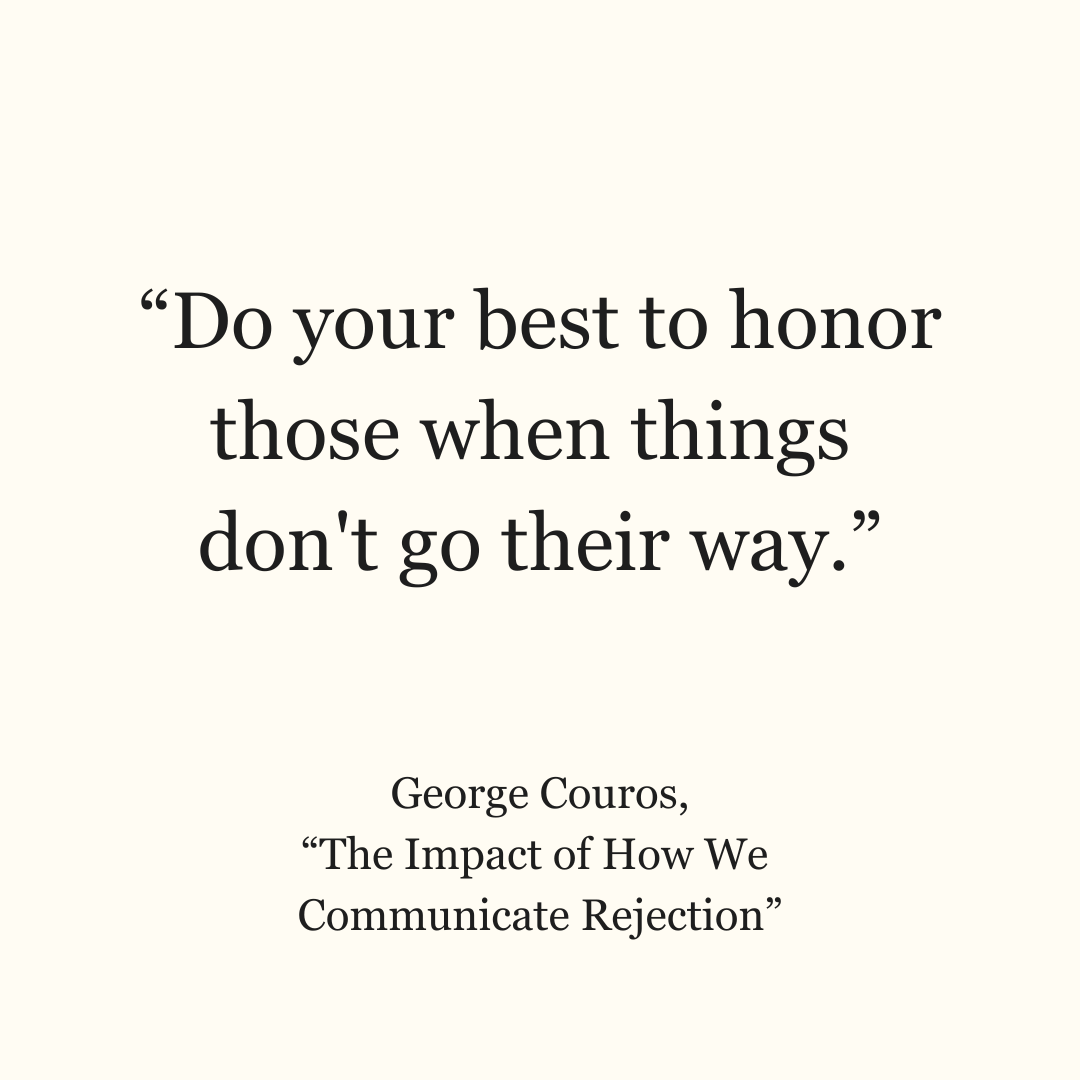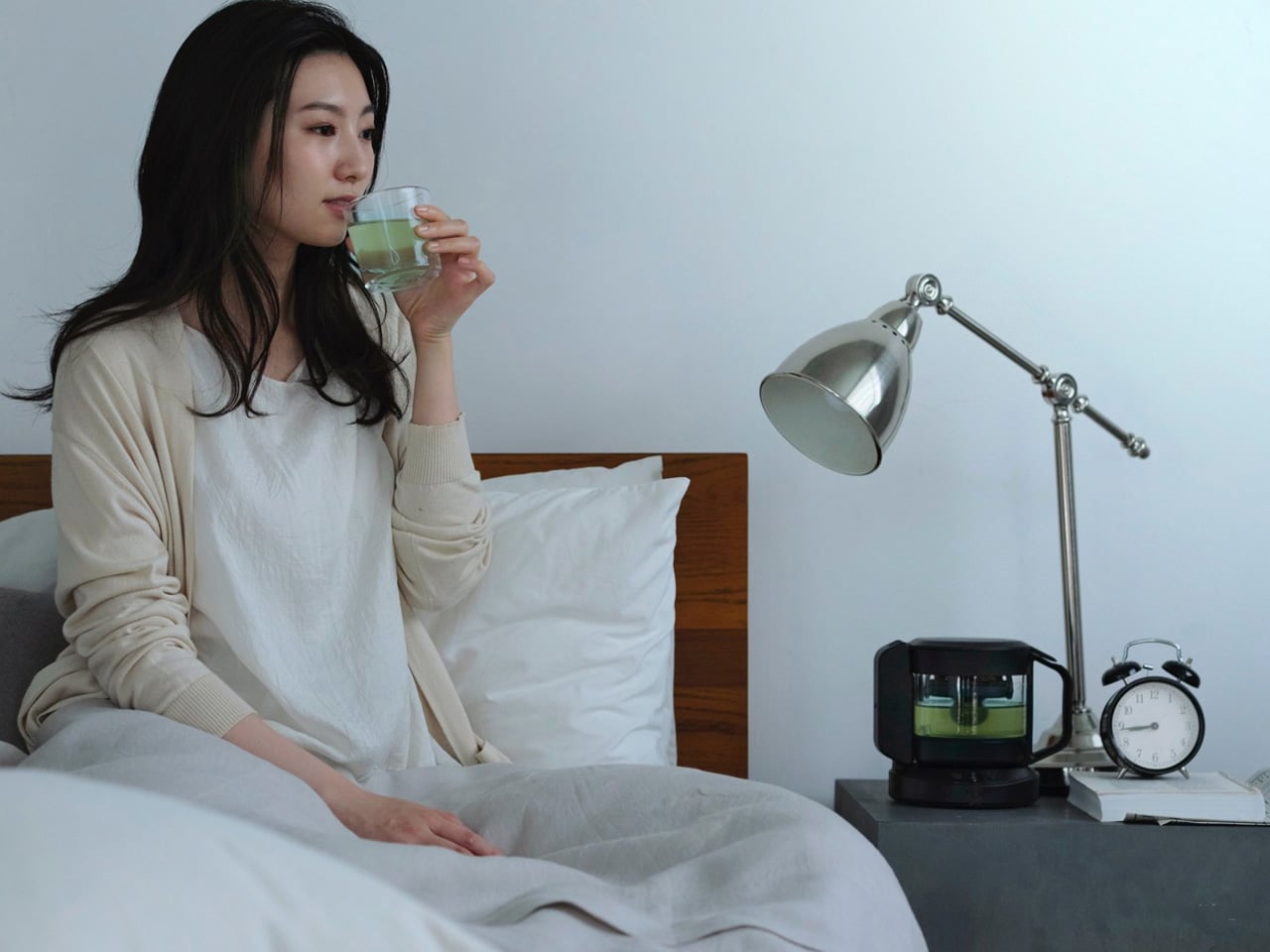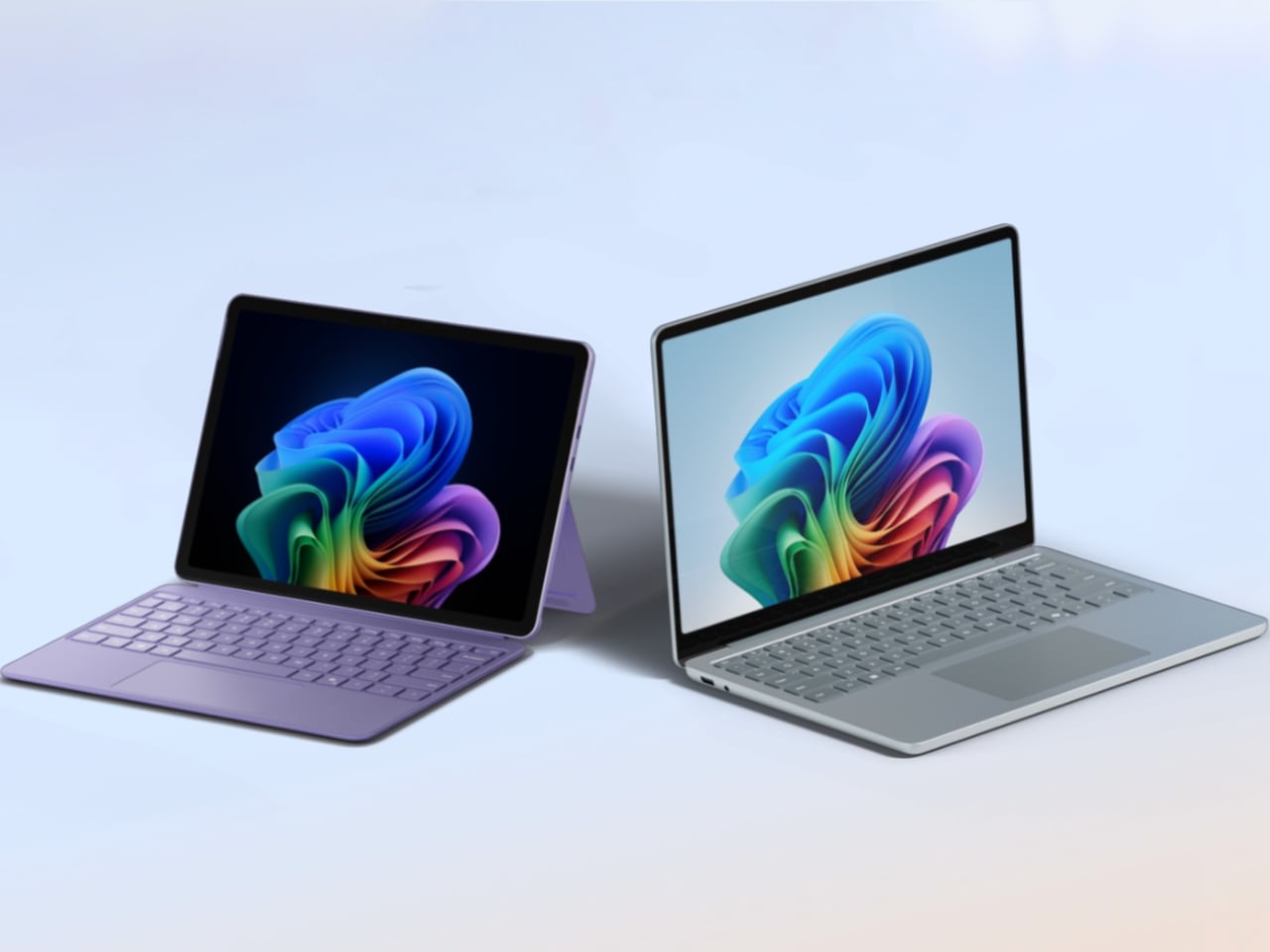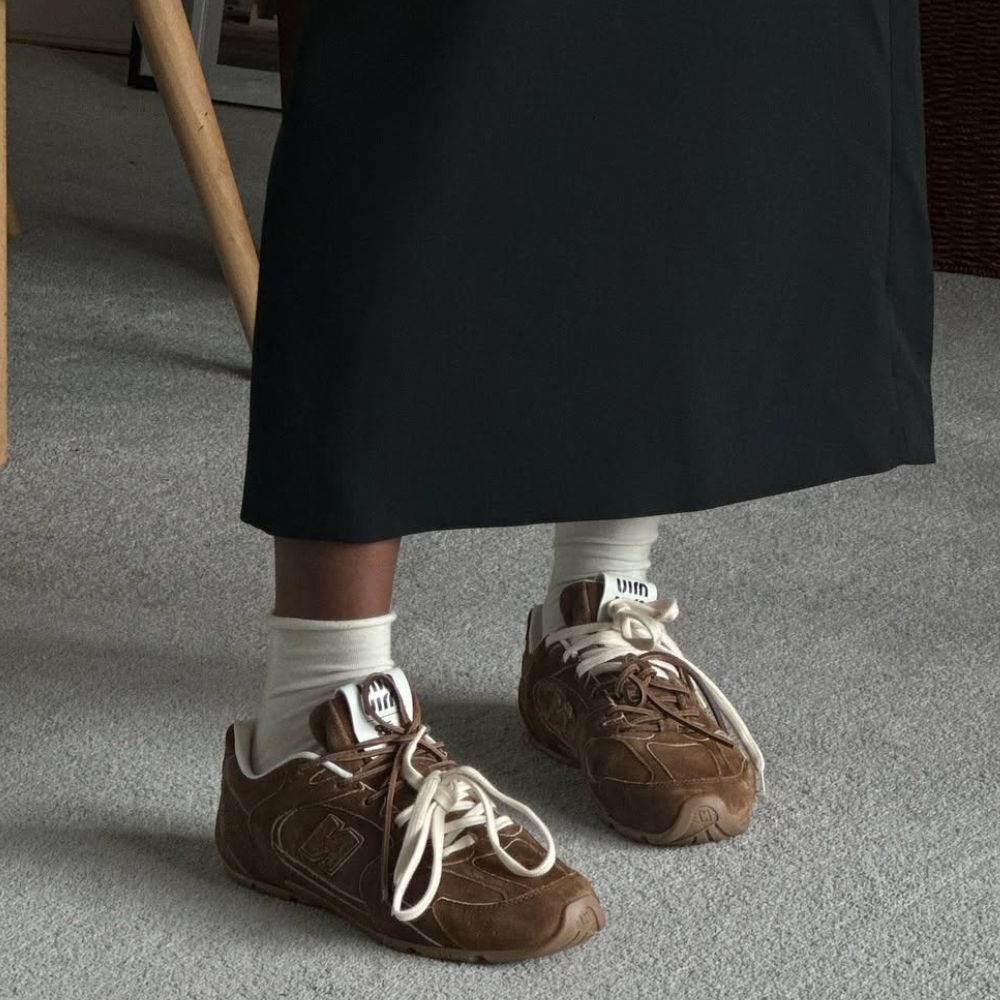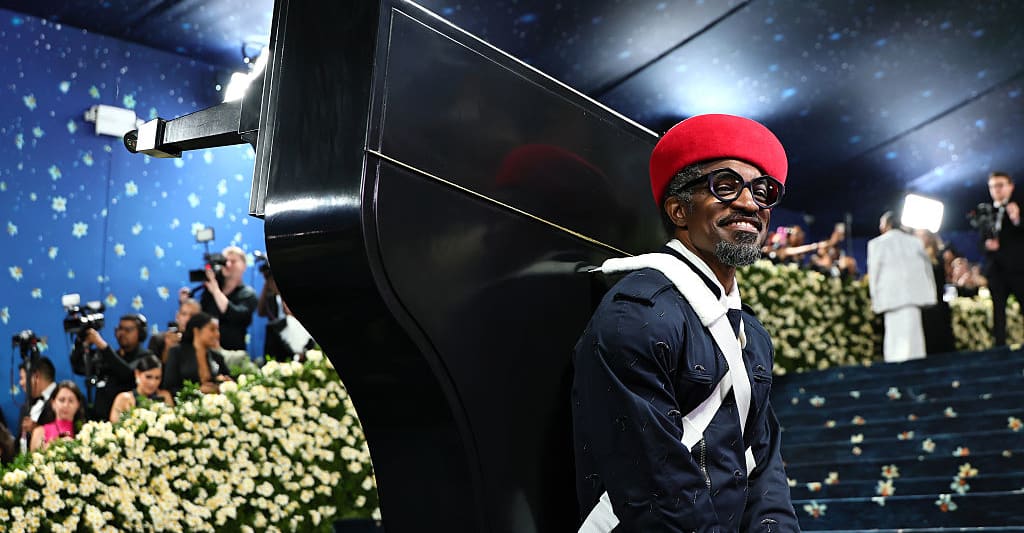The Death of Feminism
Spice Girls slogans and reality-TV aesthetics: A new book traces how feminism morphed into clickable objectification.

Subscribe here: Apple Podcasts | Spotify | YouTube | Overcast | Pocket Casts
Reports of feminism’s obsolescence have been greatly exaggerated.
As female achievement and visibility increased in higher education, the media, politics, and more, some people grew tired of being lectured by feminists and began to wonder: Do we even need them anymore?
This attitude made up a dominant strain of popular thinking and discussion in the late 1990s and early 2000s. And as the defiant, gritty rage of third-wave feminism scrabbled for purchase, a new era of “girl power” was rising up. As the Atlantic writer Sophie Gilbert tells it in her new book, Girl on Girl: How Pop Culture Turned a Generation of Women Against Themselves, young women of this time “came to believe that sex was our currency, our objectification was empowering, and we were a joke.”
Gilbert’s book skewers porn, reality TV, and celebrities for their complicity in relegating women to the role of sex object and for warping feminism into a debate over individual choices instead of collective action.
In our conversation on today’s episode of Good on Paper, Gilbert and I discuss postfeminism, explore a defense of the girlboss, and examine the false promise of sexual power.
“What I remember from my own life during this period from the 2000s was that there was only one kind of power that women were being allowed, and that was sexual power,” Gilbert recounts. “And sexual power was everywhere. It was the idea that sex would empower women and that sexual presentation would empower women was in every form of media, and it was impossible to avoid.”
The following is a transcript of the episode:
Jerusalem Demsas: In 1998, Time magazine plastered a jarring provocation across its cover: “Is Feminism Dead?” By century’s end, the term postfeminism had been thoroughly bandied about in academic circles and in the media. Had feminism finished the job? Or maybe people were just tired of feminists. Either way, something had shifted.
Gone were the days of suffragettes and feminist punk rockers. In the dawn of the new millennium, many American women were embracing the empty slogans of “empowerment” and “Girl Power.”
[Music]
My name’s Jerusalem Demsas. I’m a staff writer here at The Atlantic, and this is Good on Paper, a policy show that questions what we really know about popular narratives. In all the conversations we’re having around broken dating markets, the rights of trans people, and the growing chasm between young men and women’s political views, I’ve felt a bit lost as to how we got here. The feminism of the ’90s feels so far removed from today. What changed?
My colleague Atlantic staff writer Sophie Gilbert has a new book out called Girl on Girl: How Pop Culture Turned a Generation of Women Against Themselves. In it, she argues that the shift from ’90s Riot Grrrl grit to Spice Girls’ empty promises of “Girl Power” was turbocharged by online porn, reality-TV aesthetics, and an algorithmic spotlight that rewarded hypersexualized images over everything else.
It’s a really interesting book that I’m so excited to dive into. Sophie, welcome to the show.
Sophie Gilbert: Thank you so much for having me. This is really exciting to be here talking with you.
Demsas: Yeah. Well, congratulations on the book. I feel like it’s a big moment to be writing about feminism. I feel like everyone’s writing about the rise of misogyny and, of course, what’s going on in right-wing governments across the world. But you’re taking us back to my childhood, to the late ’90s, early ’00s. And I was feeling really nostalgic for those days before I read your book and, I mean, I guess that’s just what happens when you get older. You start kind of memory-holing everything that you disliked about your childhood. But you’ve reminded and also recast much of my memory of those times in your new book.
How would you describe the state of feminism in the late ’90s and early ’00s? What made this period of time that you chose to focus on in your book so interesting to you?
Gilbert: Well, originally when I was thinking about the book, I wanted to focus on the 2000s because that was a decade that seemed like where misogyny was really at its sort of febrile peak, should we say. But then I ended up: In my research, so much seemed to lead back to the ’90s. And so I think the ’90s are really fascinating because there was so much that was going on. And especially within feminism, there were all these sorts of debates and shifts happening. There was the evolution of third-wave feminism, which started out, I think, really potent and was very much, like, the Year of the Woman and Anita Hill’s Senate testimony and Riot Grrrl music. And it was sort of ferocious and activist, and it had this real agenda for change.
And then over the course of the ’90s, it kind of made this shift toward postfeminism, and postfeminism was so different. It was so sort of celebratory, and the ethos of it was really like, We’ve accomplished everything that we ever will, women. Don’t worry. Like, you’re free now you have jobs. Go spend money. Like, wear anything you want. Feminism’s boring. Be cool. Wear miniskirts. I’m being glib, but it was sort of very, like, Sex and the City, Ally McBeal energy.
And I sort of have been trying so much to figure out what happened to get from the Riot Grrrls to Britney Spears in her school uniform. And what I landed on was sort of the Spice Girls as the transitional act in the middle, because you had this slogan that was being used by the riot-grrrl movement—the punk musicians in the Pacific Northwest and Washington, D.C.—who were really sort of advocating for safety for women and girls at punk shows, but also, at college, safety from sexual assault. And they had this slogan that was “Girl Power,” which was fascinating because they were trying to put together words that no one would sort of free-associate: girl and power.
And then this slogan, which was very sort of charged, got co-opted by the Spice Girls, and the way that they used it was really fun—and I love the Spice Girls—but it didn’t really stand for anything anymore. It was just kind of, like, this kind of mantra that people said, and it wasn’t sort of advocating for change or anything specific. And the Spice Girls were such good branding mechanisms. They had something like $500 million worth of branding deals in the first year and a half as a band. And when people saw how much money you could make with very fun, beautiful women in pop, that was sort of the beginning of the end for feisty women in music.
Demsas: I have this trouble with cultural criticism, because it’s not what I do. This is mostly a policy show. And I’m always like, Okay, well, how do I know something? Like, is there a study? Is there something I can point to that feels concrete? Can I draw inferences from data? And the thing about cultural criticism is that it takes just absorbing a lot of qualitative material, that it’s very difficult to categorize in some objective way, and then to make arguments based on that, that are often very contested. But it’s not a computer. Like, a computer will not be able to just resolve these things for us in the way that hopefully we’ll be able to resolve some scientific questions in other fields.
And so I wanted to ask you, like, when you’re thinking through these sorts of questions—like, How did feminism change?—what are these inflection points in feminism? How do I describe what’s going differently in the early ’90s versus the late ’90s and the mid-’00s? How do you determine that things are actually trends versus something that you’re just noticing, maybe because it’s your media diet? How do you think through that problem?
Gilbert: It’s such a good question, because I think so much of what was appealing to me about this sort of period of research and study with the book was reading between the lines a bit and, like, trying to detect patterns and things that maybe weren’t so studied or weren’t so obvious or hadn’t been talked about so much. That was the thing that was really thrilling.
This period has also been studied a lot by different kinds of academic researchers. And so there were some really helpful books and some really thoughtful analysis of the period that was helpful to me. But also, I think, for myself—I don’t want to be like, So much depends on vibes, but you can tell that there is a vibe shift from the riot-grrrl movement to the Spice Girl movement. Like, it’s different. It’s sort of anodyne compared with what came before it.
Demsas: Yeah. So as you mentioned, you framed the book as reckoning with postfeminism, this idea that feminism’s work was done; women could just enjoy the spoils. But I wonder, postfeminism is a very deeply contested term. Could you help refine that down for us a bit?
Gilbert: Yeah, I mean, it’s tricky, right? Because postfeminism was sort of something that people kind of interpreted from the outside. There was no figurehead waving the flag. In many ways, postfeminism, I think now, seemed to be a mechanism to sell things, more than anything else. But there was very much this idea that was sort of spread in the media in different forms of media that people were tired of feminism; people were tired of the sort of scolding, boring, serious, blue-stocking era of second-wave feminism. And they wanted something sort of fresher and newer for the new millennium.
What was really interesting to me, in researching my book, was the influence of the AIDS crisis, because I hadn’t been anticipating that, but it was obviously this moment of profound anxiety and fear, especially regarding sex. And that impact was felt in culture in very different ways. And one of the ways was this sort of movement of what we now call sex positivity, where artists like Madonna felt like in this moment of fear, it was really important for people to be able to still celebrate sex—like, celebrate what it meant to people, what a source of joy it could be, what a source of meaning in people’s lives. So there were shows—like, HBO’s Real Sex was sort of born out of this impulse to defend sex as a pastime, not that sex has ever really needed defending, but to sort of be able to find space in media to portray it in a way that was not so fearful and so afraid.
But what that meant was: Suddenly, the ’90s were just this, like, very sexually —explicit is not the right word, but this era that was sort of defined by sex in different ways. Like, Bill Clinton—I mean, we’d never thought about a president in a sexual context before, or maybe people had, but they kept it to themselves.
Demsas: (Laughs.) Yeah.
Gilbert: But there was sort of the era of the tabloids, of Hugh Grant being arrested for soliciting in Los Angeles and all these scandals that were, like, John Wayne Bobbitt—all these scandals that were very sexual in nature. And I remember asking my parents about them and being, like, in the awkward silences at the breakfast table when they tried to figure out how much they could actually explain. But the ’90s were this decade more than ever before that was really consumed by sex. And how that fed through, I think, to feminism was: It just became so much easier, I think, with this real glut of sexual imagery in media—it just became so much easier to persuade women that was their source of power, especially heading into a new millennium, heading into this new era.
I start the book in 1999, when I was 16 years old, which was the year when you had “Baby One More Time” coming out. You had American Beauty, which was this movie about a middle-aged man with a mad crush on his teenage daughter’s best friend. And that won five Oscars, so it’s hardly fringe product. And you also had that year that Abercrombie & Fitch catalog came out, which was targeting, I think, 18-year-olds, and it had an interview with Jenna Jameson. It was just like everything in that moment was highly eroticized. And I think what was happening was: This sort of movement to celebrate sex had become commercialized in a way that I think in the 2000s made it much easier to exploit people, especially women.
Demsas: So you are describing this sort of cultural shift, and I wonder how much of it you attribute to technological changes. In the book, you talk about how these gossip blogs and social media really contribute to this culture of exploitation and objectification of women. You’re talking about this as kind of a reaction to what’s happening with people’s fatigue with second-wave feminism and fatigue with being scolded and frustration with the difficulties around celebrating sex in the AIDS crisis.
But would all of this just have happened, regardless, once you have easily accessible digital cameras and you have the internet and you have information technology so people can transmit these little news items really quickly. Is it technology that is really driving all of this?
Gilbert: This is where we need the study, you see, because we’ll never know. I mean, there were so many elements at play, but what was fascinating to me—and I sort of never had really thought about this before, because I’m not a historian of porn—was just how much porn as a cultural medium really exploded from the late ’80s onward.
I mean, there’s a statistic in the book, I think—especially if you think about VHS, like, even before the internet. I remember naively, like, going to Blockbuster and renting VHS tapes, and you probably maybe do too. It was like this technology that just felt very normal, but I think when VHS was first launched, 75 percent of the tapes at launch were pornographic. Like, it was basically just a mechanism for people to watch sex in their own homes. And from 1985 to 1996, porn rentals per year on VHS went from 70 million to something like 700 million. It was just this huge increase in the number of people watching porn. And then the internet happened. And it was, obviously—it’s hard to quantify. But imagine—
Demsas: The internet was for porn. (Laughs.)
Demsas: Yeah, I know. (Laughs.) The earliest issue of Wired in the mid-’90s, I think, was acknowledging how the internet already was just, like, this home for smut. And so I think you had this sort of shadow cultural product that was really America’s, like, No. 1 pastime at that point, but no one was really talking about it. There were jokes about it, and obviously its influence was very much being felt in culture as time went by. But it’s just so interesting to me that you could have something be so influential and so popular, but no one’s really analyzing it or kind of getting into the weeds of what it’s doing to people.
Demsas: Yeah. I mean, you wrote in the book that you just kept coming back to porn. Do you think that porn is inherently anti-feminist?
Gilbert: No. No, I don’t. And I especially know that there are filmmakers now who are making their best efforts to make feminist porn. And there are certainly really interesting things happening in the romance fiction market, which I know is not porn. But it’s sort of similarly aligned.
Demsas: Some of these things, they’re close. They’re quite close. (Laughs.)
Gilbert: But it’s interesting, right, because it’s so different. Romantic fiction has always been made for women. Whereas porn, I would argue, has always historically, with a very few exceptions, been made for men. And so if you compare the two, you can see how the people that they’re being made for influences the product itself.
And I think what was interesting to me about porn, without condemning it, is just tracing how extreme it became, especially over the course of the late ’90s and the 21st century—because mainstream media was becoming so heavily sexualized that porn had to become more transgressive to persuade people to pay for it. Otherwise, why watch porn when you can see the same thing on HBO, you know what I mean? So that was really driving this trend towards much more extreme and much more, in some ways, cruel and more violent content that I deal with in one chapter of the book.
Demsas: There are thinkers like the controversial Camille Paglia who might say something like, Sexual imagery is liberating, and women are strong enough to handle them, and the real problem is seeing prudery and women as passive victims. And she’s criticized anti-porn feminists as being anti-sex. How do you respond to those who argue that porn, strip clubs can be venues of women’s empowerment? And of course, like, as you’ve said, it’s not that you don’t think that theoretically they can’t be. But in the instantiation that they have, in reality at this time period you’re studying, it seems like a lot of people might push back and say like, Yes, there’s degradation, but empowerment is much more a theme that they’re witnessing. They’re also saying, like, Women do have the choice to opt out of these situations. So how do you respond to those kinds of critiques?
Gilbert: Well, the word empowerment is really interesting to me because whenever I encountered it in my research, it was being used to defend something that was absolutely not about giving women power, like Wonderbras. I think when they first launched, everyone was like, Wonderbras are empowering. Like, I’m sure people have defended corsets and lip gloss as being empowering.
I mean, there was a torture porn movie that came out in the 2000s starring Elisha Cuthbert, and there was a very sort of controversial ad campaign for it that depicted her being bound and tortured, and even in some of the images, like, her body, her dead body. There was this massive reaction to the campaign, and one of the producers of the film was like, Well, she fights back in the movie. This movie’s actually about female empowerment.
And so I’ve sort of become very suspicious now whenever I find this word, because it seems to be such a tell in so many ways. And what I would say is: Of course, women have the right to present themselves any way they want and to feel empowered and act any way they want and behave anywhere. That’s the point of feminism. It’s not to judge other women or to condemn them or to restrict their choices. It’s to offer people more choice and more freedom.
But I would just say that what I remember from my own life during this period from the 2000s was that there was only one kind of power that women were being allowed, and that was sexual power. And sexual power was everywhere. It was the idea that sex would empower women and that sexual presentation would empower women was in every form of media, and it was impossible to avoid. And we absorbed it. Of course we did, inherently. And the issue I have with that is not that sexual power isn’t real and can’t make someone feel powerful, but it’s the absence of all other kinds of power, like the distraction of what sexual power promises. And what I’ve come to think of much more as I enter my midlife period now, in my 40s, I’m much more interested in other kinds of power.
Demsas: Well, to push on this a little bit more, because you brought up romance novels as something that’s being made for women. I’m hoping you can help tease out how you distinguish things that are actually venues for women to express themselves sexually and have access to their sexual identity, and ones that you view as primarily exploitative. Because a lot of these romance novels are extremely violent. They’re indulging in fantasies where, if they were depicted on a screen and the director was a man, I could imagine it being criticized in your book. So how do you distinguish between these two types of things?
Gilbert: I think I must be reading different kinds of romance novels, because—
Demsas: Well, look at, like, Fifty Shades of Gray or things like that, where it’s kind of dominating.
Gilbert: Oh God—
Demsas: I mean, those are very, very popular.
Gilbert: Yeah. I mean, the difference, I would say, between romantic fiction and porn is that romantic fiction—and I’ve written about it for The Atlantic in the past, defending it, because it’s always been condemned as trash, as fodder for maids to read, scullery maids—but the difference is that romantic fiction sees women as full-bodied human beings with consciousnesses and who are deserving of dignity and kindness and respect. And that doesn’t mean in scenes of a sexual nature that those things always adhered to. But porn, I would say, does not. And that’s the difference.
There was actually a really interesting argument from the sociologist Alice Evans that I found about a year ago, and she found that one of the best predictors of how a society—and a society in a different country or a different era—how it treats women and what kind of status women enjoy in that society is the importance that society places on romantic love. And so cultures that are more inclined to celebrate romance are more inclined to see women as human beings and to think of them as worthy of respect and dignity and kindness. So once you see that, it’s very hard to unsee.
[Music]
Demsas: After the break: in defense of the girlboss.
[Break]
Demsas: I know that your book is not about what should be done about this, but what do you think should be done about porn? I mean, is this something where you view the need for governmental action and intervention here? Because there’s always this tension between How much coercion do we want in these spaces? and Is the free marketplace actually ending up coercing us anyway without that government intervention? Not that you need to lay out a specific policy agenda, but do you think that the government should step in and regulate what types of porn is allowed? Like, do you view that as possible in a place where the government struggles to really hem in the internet?
Gilbert: It’s so funny because I was just listening to your episode on this, and it really did make it sound like, Oh, there’s not really a lot to be done here. I mean, the things that are so crucial, I think, are the things that are maybe the hardest to implement—and I don’t think that means people shouldn’t try, because if you don’t try, nothing will ever change.
And I think that means better education, better media education for teenagers. I know there’s a significant movement now among my fellow parents to not give children phones until they turn 14 and to keep them off social media as long as possible. And I have two 4-year-olds, and the idea of them being on the internet is the most scary thing in the entire world. So I’ll check in 10 years and let you know how that’s going.
But, I mean, so much of it relies on people being willing to think critically about what they consume, and that’s not always possible. But also, at this point, it just feels like the genie’s out of the bottle with so much content. I do think there are filmmakers like Erika Lust who are really doing their best to make feminist porn that treats performers ethically and is much more curious about female desire and treating women not just as objects. But as far as the legislative aspect of it, I mean, I know in my home country, in the U.K., they’re making great efforts now to try and make porn and all kinds of content less available to children. So it’ll be interesting to see how that pans out.
Demsas: One thing I find interesting in your book is: I was trying to identify the villains. I was trying to go through and be like, Okay, who does Sophie think are all the bad people? And there’s some obvious ones, like Harvey Weinstein, etcetera and other misogynists who have committed crimes against women. But one thing that I see is that you don’t let women off the hook, right? Was it bell hooks who said, “Patriarchy has no gender”? Meaning that women can uphold sexist culture and do uphold sexist culture just as much as men. And of course, the title of your book, Girl on Girl, and the subtitle, which specifically points to how we’ve turned against ourselves. How do you think about the question of female agency?
Because sometimes I hear from people who push back on this argument, saying, Okay, it’s like feminists want to have it both ways. Like, both you are put upon by society, and also, We’re victimizing you by not giving you the voice in describing how power is actually distributed in society. Do you have pushback on women’s complicity here? Like, are we just doing this to ourselves? And the question is just: When will we stop?
Gilbert: No, we are not. I mean, I think people complicate arguments so much. I’ve heard from so many women who are like, I’m not a feminist, because I like men. And I’m like, No, I like men too. I have a husband. I have a son. My boss is pretty great. Like, there’s all kinds of men who—that makes it sound like I’m saying, Some of my best friends are men. (Laughs.)
Demsas: (Laughs.) Not all men.
Gilbert: But the point is not to be anti-men or that it’s a zero-sum game. The point is just: Do we think that women are equal human beings, and do we want women to have equal opportunities? And the answer to both of those, for me, obviously, is yes. And I don’t know—everything else just feels like muddling up people’s thinking.
The complicity of women is an interesting idea because women are not a monolith, and we never will be. And we’ll always have different motivations and different backgrounds, and we’ll always want different things, and we’ll always, in some ways, be in conflict. But I don’t know—I just think there was this real shift in feminism in the 21st century towards a more individualist outlook, and it has not made anything better. And I think if we are going to try to change things in the years to come, we have to start thinking more collectively and to think about what we can do that will benefit not just ourselves and not just our circle, but all women—like, what we can do that will really make a tangible difference in women’s lives.
Demsas: It’s funny. I was reading your book, and I was nodding along to so much stuff and then I got to—you critique individualism and girlboss feminism. And I’ve begun recently feeling a bit defensive of girlboss, individual feminism. And I’m not saying that it’s, like, a holistic solution or anything, but I feel like there is this trend now where, in order to recognize structural critiques, we’re, in essence, reducing our own individual agency. I mean, the research has shown repeatedly a positive relationship between having an internal locus of control and better mental health.
So like, do you believe that outcomes and misfortune are largely driven by your own actions and choices and abilities, or external ones, like powerful people or chance? And internal locus of control is much better for mental health. And it may not be true, right? It may just be, like, a lie that we tell ourselves.
But at the same time, I really remember coming into contact with a bunch of arguments when I was in late high school, early college in particular, around reframing interactions that I had, that I’m now understanding like, Oh, this was tinged with misogyny. I’m re-understanding and contextualizing all of these dynamics that I’ve noticed and have stuck with me. And it didn’t make me feel better. Like, it didn’t make me more capable of fighting back. I actually felt a lot worse for a serious period of time. And it may have been true, right?
But anyway, I say all that to say, like, I do wonder if there’s some compatibility here. Like, yes, of course, collective action is needed, but having this sort of “lean in” energy, girl-boss energy may actually help individual women navigate their own lives.
Gilbert: Yeah, I guess I don’t think it’s an either/or situation. I think they’re very compatible. I mean, if I had really believed in collective effort to the extent of everything, I probably would not have written a book. Obviously, I can’t stand here and say that I don’t have my own career ambitions and my own—
Demsas: You’re girlbossing right now.
Gilbert: I am. We are both girlbossing. We should change the name of this podcast and write a new book, #girlbosses. But, like, the thinking strategically needs to be more inclusive. And that doesn’t mean that we can’t and we shouldn’t all have our own dreams and our own goals and our own ability to sort of feel empowered—there’s that word; oh my God—our ability to feel in control of our own lives and to feel like we’re able to make differences.
But in terms of feminism’s ambitions more broadly, it’s so powerful to me whenever you can sense that. And I’m going to use an absurd example here, but I remember I was so depressed after Roe v. Wade was overturned, and I remember going to see the Barbie movie in my little pink jacket. And it just felt so lonely. I felt so isolated. I felt so feeble in so many ways, and there was just something about seeing all the other women in their little pink jackets that made me feel like, Oh, maybe I’m not alone. Maybe there’s some way that we can harness this, like, group energy. And I know that protests are really good for that, too—which obviously, we are not allowed to do, because we’re journalists. But protests, I think—just that sense of feeling connected with other people for a shared goal can be so powerful and so inspirational.
Demsas: So what we need to do is get everyone on board to a Lean In book club, and then we’ll have it. (Laughs.)
So amid a lot of the doom, you do point to Taylor Swift as a hero, which I was a little bit surprised about. I’m a big Taylor Swift fan. I went to see her concert. But I think often she’s at the receiving end of a lot of criticism around feminism. Can you elaborate what makes her kind of an emblem of progress?
Gilbert: Well, she was really interesting to me because she emerged as an artist in this, like, wasteland of music in 2005, 2006, 2007—where, to go back and watch some of the videos now, as I did for research, is a really interesting experiment, because it’s like Fergie, “Buttons,” Pussycat Dolls. It’s a lot of, like, kind of dull rap music about strip clubs, and it’s, like, all the songs are like, Smack that, tap that, hit that, laffy taffy. It was just a lot of very objectifying, which—and those songs slap.
But put collectively, shall we say—I mean, my point with this book is never to indict anything individually. It’s more to point out patterns and themes that are maybe interesting when you look at them. And Taylor Swift came into this very sort of gloomy environment, and she just asserted her interiority, and it was this real force of feeling and emotion, and she’s never shied away from writing about—I mean, obviously, she’s not the first person to do it. It’s a grand tradition in music.
But she’s always—even the way that she tells stories about her own life and the way she sort of incorporates things, it sort of aligned with this movement of first-person confession in writing for women in the 2010s that, to me, was really fascinating. Because the 2000s was such a period of tearing women apart, raking them over the coals, criticizing them, dehumanizing them. And then suddenly, you had this movement of artists and writers coming along who felt the need to kind of just express themselves and really, like, unburden themselves on the page and in songs, and to kind of defend themselves as thinking, feeling human beings.
Demsas: I mean, this kind of leads to sort of a more meta question about cultural commentary in general. And obviously, you’re not saying in your book that all anyone needs to do is do cultural criticism and make better art. But your book leans heavily into focusing on media, music, and fashion. And what is the value of investigating those sorts of things—in looking at Taylor Swift lyrics, in interpreting feminism? Like, why not focus just on what’s going on in labor rights? Like, you talked about Roe v. Wade—like, why did you not become inspired to just write about abortion rights and the ways in which that’s shifting in society? So why do you view this as a valuable way to do feminist critique?
Gilbert: Because it’s where most women are. And the culture that especially women consume has always been derided as trash. Especially if you look at something like reality television, no one cared to really—I mean, there are academics who have—but its influence has never really been given the study that it deserves, I would say, because people don’t want to think about it seriously. They think it’s a kind of absurd thing, like silly little shows that women watch on Sunday nights. But they’re massively influential. And the ideas about beauty, about bodies, about friendships, about relationships, about power, about money, about careers—like, they atomize out all these different ideas into the mainstream, and we, the consumers, absorb them even if we don’t watch those shows.
Like, everyone knows who Kim Kardashian is. And I remember writing about her in 2014, back in The Atlantic, and I would get these furious emails from people like, This is the magazine of Emerson and Twain; like, how dare you lower yourself to write about this trashy woman? But she, I would argue, now is one of the most powerful women in the world and certainly one of the most influential. And so if you want to look at what’s happening to women, there are certain people who really can embody it, who can embody those shifts, and who can sort of show you not just what’s happened but also what might be coming.
Demsas: So your book and much of this conversation has just really been focused on this time period, the early ’00s, in particular. But I want to ask what you think about more modern shifts, particularly in the post-#MeToo era. So there’s this idea that Simone de Beauvoir had about this master myth around an unattainable ideal that women are supposed to reach. And this ideal-woman myth, in her telling, was: You had to be the perfect wife, the perfect mother, a muse. In the early ’00s, you kind of have this sense of the perfect muse is this extremely waifish, beautiful, sexy girl who bears herself out to the world, never ages above, like, 17 years old. What does that ideal woman look like now?
Gilbert: Oh God. I mean, I think I write about Fleabag in the book as being this, like, satire of a woman who just cannot get to grips with what women are supposed to be. Because she doesn’t feel powerful. She doesn’t feel like a girlboss. She can’t identify as a career woman or as a sexy lingerie-wearing dominatrix. Like, she just cannot feel at home with mass portrayals of womanhood.
And I think, to use some recent examples, there is so much in recent media that is so much better than things used to be. And I think about movies as an example— like, the 2000s were just this decade where there really weren’t many movies about women for women. Every movie seemed to fail the Bechdel Test. I mean, women, if they appeared at all, they were sex objects or they were scolds, or they were boring girlfriends who were getting in the way of the fun trip to Vegas or whatever. It was just this complete lack of curiosity and interest in women’s lives.
Whereas now, like, I think about the Golden Globes and the Oscars this year: Like, you had these women in their 40s, 50s, 60s doing the most interesting performances of their careers and exploring subjects like beauty culture and aging and motherhood and all these, like, really rich stories being made for and by women. And they’re complicated. They’re hard to parse. But they were so much more compelling than a lot of what’s come before.
But I would say the thing that sometimes gives me pause is that even though there are so many women now who are allowed to be visible in their 40s and 50s and 60s, they’re only allowed to be visible under certain terms, right? Like, they’re all gorgeous, they’re all immaculately well-preserved, they don’t seem to age, and sometimes the sort of uncannyness of that, it’s always the tension that I’m always stuck on. Like, it is incredible to have more visibility for women in midlife and even late in life. But if the bargain is that we have to present ourselves always in the same kind of girlish way, what does it mean?
Demsas: How do you kind of put together this view of women’s power being so focused on their physical appearance and that’s kind of the only realm of power, as you said, that women are allowed to have. How does that fit in with existing narratives around women’s educational attainment now exceeding that of men’s?
Of course, women’s purchasing power is really high. As you talk about in your book, a lot of postfeminism, a lot of this era of American feminism—or Western feminism, that is—is focused on things that you can buy, which I think reflects the purchasing power that women have gained in recent decades. So it does feel like there’s a lot more gains that have been made in material realms but that those material changes have actually perpetuated the misogyny rather than freeing women from it?
Gilbert: It’s interesting because one of the things I think that really changed portrayals of women in media from sort of the late ’90s onwards was the discovery by corporations that teenage girls had lots of pocket money. They had babysitting money, and they didn’t have mortgages, so they could go to the mall at the weekends and they could buy things, and they would buy things because they had extra cash, and they were this very powerful demographic. And of course, that changed culture because you needed different kinds of people to sell them products and different kinds of imagery to make them want to buy products. And so that’s a lot of where the Britneys and the Christinas came from.
I think what I come to at the end of the book—I interviewed Tom Perrotta at The Atlantic Festival a few years ago, and he, of course, wrote Election, the book that was made into a movie with Reese Witherspoon as Tracy Flick. And Tracy Flick has forever been our kind of icon of female political ambition. And Tom said that he was sort of surprised by that, but then somebody—it occurred to him at some point that there just weren’t other cultural portrayals of women seeking out political power or women politicians even in general. And that’s why I think when we have this stereotype of the sort of grasping ambitious political blonde, it’s Tracy, it’s Leslie Knope, it’s Hillary Clinton even. Because there’s just this real void of cultural considerations of women who want power and use power and have power.
So I think one of the things that I’m really interested in, people sort of say, Oh, why don’t you have more solutions in the book? And I think, at the end, I actually do. I think one of the solutions I would suggest is just different kinds of storytelling about women, and especially about women in power that sort of try to make the ideas less divergent—and I guess it does come back to “Girl Power” in the end and, like, the idea that these are two words that shouldn’t go together—but more really thoughtful, really intellectual. And that doesn’t mean that women would be necessarily so much more gracious with power than men. And I think some of the most interesting writers and thinkers out there don’t take that for granted at all. But just more understanding, more sort of creative thinking about what it might mean for women to have power and to wield it.
Demsas: I think that’s a great time for our last and final question: Sophie, what is something you once thought was a good idea but ended up being only good on paper?
Gilbert: I don’t know if this will be controversial or completely noncontroversial, because to me, I think: social media.
Demsas: Yeah, yeah.
Gilbert: Maybe people have said this before.
Demsas: No, but it’s a good one. What happened?
Gilbert: I don’t know. I just feel like we’ve lost the ability to relate to each other and to connect with each other. And I think about so many—especially, like, living in London now—so many of my friendships, so many of my work relationships, so many of my, like, really critical friendships, they’re all sort of online. Like, I don’t really call my friends on the phone anymore, because I’m that elder millennial who would rather die than leave a voicemail. And I feel like I’m in touch with people, because I see these pictures of them and their kids online, but it’s not real.
And I think one of the things—especially after COVID, it was just so much harder to have conversations with people in real life. And you, obviously, will have the studies to show the sort of very tangible effects that social media has had on people’s lives and what it does to us in so many ways. But thinking just purely about human beings relating to human beings, I’m not so sure that it’s a force for good.
Demsas: I’m so cross-pressured on social media, and I think partially it’s because, like, once everyone starts saying something, I’m just like, I don’t know. Like, maybe everyone’s wrong. But like, I also just think back, and there’s so many people who I genuinely would not have interacted with or known about or, like, heard their ideas or arguments if there was not some vector for them to speak louder than they had the ability or power or time to do. And it’s just—I don’t know. Like, obviously, the things that are bad, I think it’s, like, fried my brain, you know what I mean? So that’s not good.
But I just really feel like we’re—maybe not you in particular, but as a culture, I worry that we’re overshooting the harms here sometimes. And I just remember there was a big moment during the Arab Spring when everyone was like, This is going to be—it’s possible now for people to organize protests and shifts with social media, and that obviously did not turn out well.
Gilbert: It’s really interesting. I’ve been reading Careless People, the Facebook memoir by Sarah Wynn-Williams, and she sort of charts the evolution of Facebook from that really hopeful period, where she was like, Facebook is going to change the world, to what actually happened and the sort of real atrocities that she writes about Facebook being involved in one way or another.
And I don’t know. I’m like you. I mean, it has elevated so many different kinds of voices that have been so beneficial to my life and to my work. It’s just, it’s not as real as the communities that I have now, like around my children’s school and my children’s friends. And I think being a part now of a very real three-dimensional, tangible community of people who are actually there to pick up your kids if you are stuck or to help you if you have a doctor’s appointment or, like—I don’t know. There’s a guy who saves a loaf of bread for me in the morning. Like, stuff like that. It sounds so medieval. It sounds so, like, Gilmore Girls.
Demsas: It’s like an American’s version of, like, what we expect is going on in the U.K.
Gilbert: Yeah, seriously. My bread man. But you actually feel this is a real community, and that’s not to devalue online communities. Like, it can be profoundly powerful and helpful, but I’d find the real iteration of it so much more important to my life.
[Music]
Demsas: Well, thank you so much for coming on the show, Sophie.
Gilbert: Thank you. It was so nice to talk to you. I’m so sad that we still haven’t met because I’m so far away. But I hope we will very soon.
Demsas: Good on Paper is produced by Rosie Hughes. It was edited by Dave Shaw, fact-checked by Ena Alvarado, and engineered by Erica Huang. Our theme music is composed by Rob Smierciak. Claudine Ebeid is the executive producer of Atlantic audio. Andrea Valdez is our managing editor.
And hey, if you like what you’re hearing, please leave us a rating and review on Apple Podcasts.
I’m Jerusalem Demsas, and we’ll see you next week.













![|ー ▶︎ [ Wouldn't it be easier if you could trace your data structure with lines? ] ー,ー,ー;](https://media2.dev.to/dynamic/image/width%3D1000,height%3D500,fit%3Dcover,gravity%3Dauto,format%3Dauto/https:%2F%2Fdev-to-uploads.s3.amazonaws.com%2Fuploads%2Farticles%2F2k02ska8tyhhnijercgq.png)




_Brian_Jackson_Alamy.jpg?width=1280&auto=webp&quality=80&disable=upscale#)











